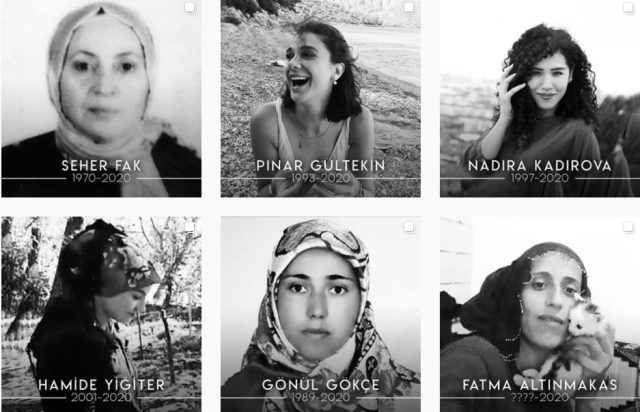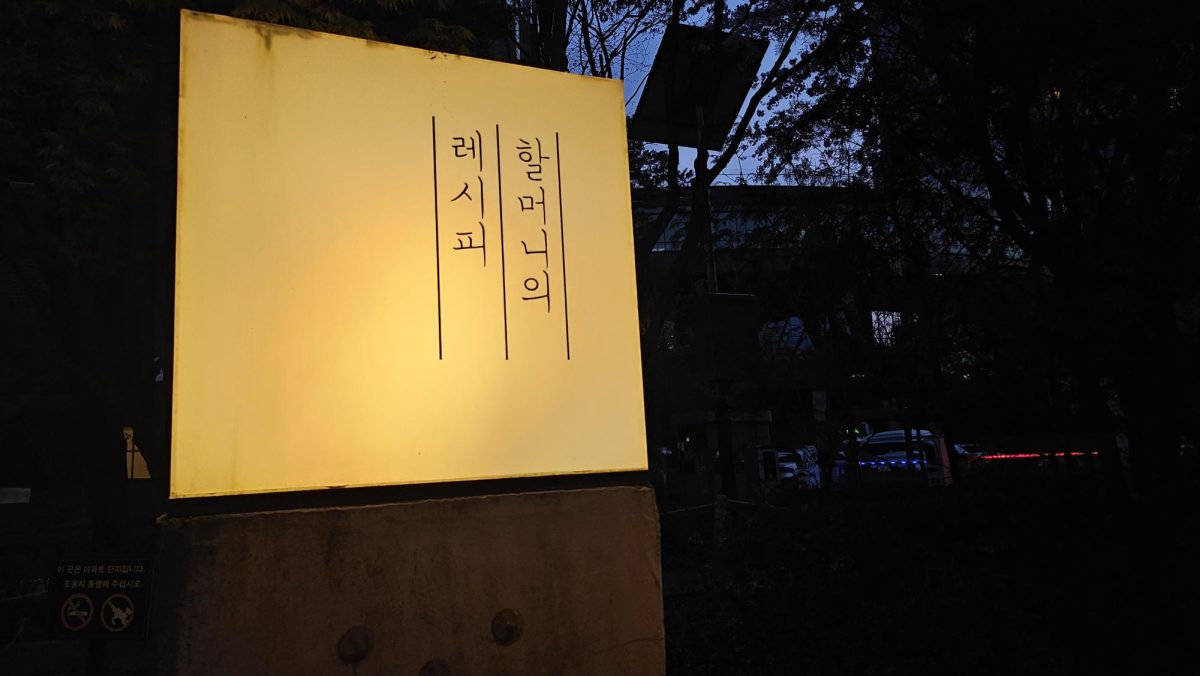
IN COLLABORATION WITH THE STONY BROOK PRESS
By Rabia Gursoy and Falah Jalali
Femicide in Turkey
Black-and-white photos of women flooded Instagram in mid-July with the hashtag #ChallengeAccepted. So far, more than 6 million women have posted pictures using the hashtag and that number continues to increase.
The trend, originally from a 2016 challenge to raise cancer awareness, reappeared with a new purpose this past month — a reminder of the femicide rates in Turkey and the importance of the Istanbul Convention, which was signed in 2011 to take measures that would prevent violence against women, protect victims and prosecute the perpetrators. The challenge has since picked up momentum, thanks to informative posts by Turkish activists and feminists from around the world.
Turkish accounts started posting photos using the hashtag #Istanbulsozlesmesiyasatir, which translates to “the Istanbul Convention saves lives.” The campaign is a reaction to the Turkish government’s proposal to withdraw from the convention, though the country was the first to sign it.
Now, activists are criticizing Turkey for failing to properly implement laws.
“There is a lack of action and response against domestic violence in Turkey because the government believes that if men are taken out of the household, then the traditional family structures are broken,” Zeycan Rochelle, a Turkish philanthropist, said. Her Instagram post about femicide, compiled using information from Turkish feminist accounts (@frabiaa, who is an editor at The Statesman, and @minaonthemoon), went viral on July 27.
https://www.instagram.com/p/CDKyKgVHWt_/?utm_source=ig_web_copy_link
Many assault cases that make it to court favor male perpetrators and lead to reduced sentences.
“The defense attorney recommends the man to show heavy remorse at court so that the judge has sympathy for them, which works most of the time,” Rochelle said. “This is exactly why the Istanbul Convention is so important — because without it, there is no rule of law, there is no legal structure protecting women.”
Talks about the withdrawal from the Istanbul convention began when Deputy Chairman Numan Kurtulmus stated that the signing of the convention was wrong.
“When our people has such an expectation, we cannot stay indifferent to this. As we have duly signed it, then it would be possible to duly withdraw from it,” Kurutlus stated. He also stated that the convention harms traditional family structures.
Following these comments, President of Turkey Recep Tayyip Erdogan made a statement saying that if people want to withdraw, then the government will comply. And so, feminist groups and activists started protesting on the streets and social media.
The talks of withdrawal came after the vicious murder of Pınar Gültekin, whose death became a symbol among protesters. Gültekin was a 27-year-old Turkish student who was murdered by her ex-boyfriend, Cemal Metin Avci. According to autopsy results, Gültekin was beaten and strangled to death. After killing her, Avci allegedly torched her corpse in a garbage can and dumped her remains in a forest. He has since been arrested on homicide charges.
In Turkey, at least 474 women were murdered in 2019 — most of them by current or former partners, family members or unrelated males who wanted a relationship with them, according to We Will Stop Femicides Platform, a Turkish rights group that monitors violence against women. The social media posts are meant to demonstrate that protesters relate to and stand with the victims.
“The Turkish population is so accustomed to seeing black-and-white images on either their phone, their television screens [or] on news outlets that say another woman has died and this is how,” Rochelle said.
The vicious murder, along with the possible withdrawal from the convention, sparked protests around Turkey and posts on social media. According to social justice activist Can A. (@stopfemicides), who did not want to use his last name in order to avoid being politically targeted within Turkey, the black-and-white photos represent victims’ last pictures, which are often printed in newspapers.
https://www.instagram.com/p/CDL3Oqqger0/
“People realized that they do not get punished for killing a woman,” Can said. “Most of the time, murderers get out on parole. Knowing that there is not going to be any repercussions on their actions, I think it made people think that it’s okay for them to get away with it.”
Femicide is a rooted problem in Turkey and has doubled since 2012, according to the We Will Stop Femicides platform. An attempt to highlight the issue in 2019 was made by Deniz Tekin, a Turkish artist. Tekin produced a 50-second portion of “Susamam,” a Turkish rap song discussing many problems in Turkey, last year. Tekin’s contribution, dedicated to women’s rights and all victims of femicide, was called “No One Ever Murdered Me.”
The line from “Susamam” is translated below.
I wouldn’t know
I’ve never really had to defend myself
I wouldn’t know
I’ve never really had to worry about a child
No one ever forced marriage
There was no abuse at home
I never felt imprisoned in my own home between four walls
Never been indoctrinated
Never been displaced from home
Never felt your endless hatred
Never been burned alive before
Never had sibling
I’ve never been afraid of my brother
Never been forced to drop out
The trend has now gone global, and many women around the world have come together to show their solidarity on Instagram. Protests in order to highlight the Istanbul convention spread worldwide and even took place in New York on Aug. 9. The talks of withdrawal from the Istanbul convention are still ongoing. Other nations, such as India, have also joined in to spread awareness of femicide within their countries.
Femicide in India
Rape and sexual violence have been under the spotlight in India since the rape and murder of Jyoti Singh in 2012, when the 23-year-old was repeatedly raped by eight men on a private bus, mutilating her body and later throwing her out of the moving vehicle. Despite global humiliation bought upon the country in 2012, the number of rape and sexual violence cases has increased. The India Crime and Safety report of 2020 stated that more than 32,500 cases of rape were registered, which means there were about 90 cases per day.
On Aug. 17, a 17-year-old girl was raped by two men who burnt her body with cigarette butts. The victim was found by her parents after she had gone missing the previous night. The two men were later arrested and charged with rape as well as the Protection of Children from Sexual Offences Act, which came into effect in November of 2012.
On Aug. 14, a 13-year-old girl’s body was found in a sugarcane field. She was raped by two men from the neighboring village who later killed her by strangulation and left her body in the field. The parents of the girl said that when they found her body, her eyes were gouged out and her tongue was split, though the police denied any signs of mutilation.
Both rapes happened in the same week and in the same state of India, Uttar Pradesh. The accused have been arrested, but instances like these are common in India.
Indian stars keep their silence on problems like rape out of fear of political consequences. However, big Bollywood stars like Katrina Kaif and Sonam Kapoor, along with many others, shared their black-and-white photos in solidarity with women in Turkey.

With 12 million girls aborted in the last 3 decades, India has been fighting a battle with female infanticide for a long time even before the country was colonized. A 2018 economic survey reported 63 million women are missing from its population and 2 million go missing every year because of abortion, disease, neglect and inadequate nutrition. Bigoted societal practices, such as dowry — the transfer of parental property, money, and gifts at the marriage of a daughter — and kinship structures make having a female child a financial burden.
The value of a girl is seen purely through a patriarchal lens. Some examples of this can be seen in cultural practices. Women have to move to their husband’s house after marriage and property always passes on to the son rather than daughters. Funeral rituals for parents can only be performed by a son.
Meanwhile, girls from poor families experience premature deaths due to the gendered allocation of food and inadequate access to proper medical care. Sex-selective abortions are also rising among the financially stable.
Human Life International (HLI) reported that trafficking and violent crimes are on the rise due to a scarcity of women. Women are abducted from their homes and taken to villages that have a shortage of women for bachelors to marry. Midwives “put a spoonful of unhusked rice into the [newborn’s] throat, so the soaked rice expands and chokes the child to death,” Milagres Pereira, HLI India affiliate, said on HLI’s website. “As horrible as it may sound, this is the truth.”
Sex-selective abortion, in which female fetuses are aborted solely based on their perceived low value, is on the rise in India at an alarming rate. This has led to disproportionate sex ratios in every state of the country, with 929 females to 1000 males in urban areas and 943 females to 1000 males in rural areas. Men outnumber women by 37 million, according to the 2011 Indian census.
The killing of women is a problem that affects men and the very structure of society at large. A growing number of eligible men are unable to find brides in India due to a shortage of women. In Haryana, a northern state in India, femicide was prevalent but eventually slowed down. In this state, men often succumb to depression and loneliness, leading to health issues and in some cases suicide.
“People devalue their masculinity,” Prem Chowdhry, a researcher and social scientist in New Delhi, said. “If they remain single, they will be declared not men at all. The basic function of a man in a rural society is to have a family and look after that family.”
But femicide is not exclusive to just one or two countries — it is a global problem that must be highlighted. Around 66,000 women are killed violently around the world every year — accounting for almost 17% of all homicide victims globally, according to a 2013 report by the Small Arms Survey.
The murder of women solely due to their gender is an undeniable reality that is happening right now in 2020.















